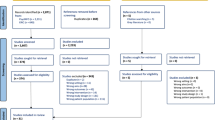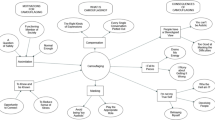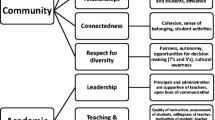Abstract
Behavioral problems in schools can cause serious harm to the emotional and social well-being of students and limit their ability to achieve their full academic potential. A prior pilot study on the universal application of Coping Power showed a significant decrease in the hyperactivity behaviors of five classes. The next step was to test whether Coping Power Universal could be successfully implemented by teachers in a variety of Italian schools. The sample involved 40 third- and fourth-grade classes (901 students) from public schools located in three Italian cities. Twenty classes were randomly assigned to Coping Power Universal, and 20 classes were randomly assigned to the control group, which received the strictly standard academic curriculum of Italian elementary schools. At each assessment period, the teachers completed the Strengths and Difficulties Questionnaire. The findings showed a significant reduction in hyperactive and inattention behaviors and conduct problems and emotional symptoms in the intervention classes compared with the control classes. This study suggests that Coping Power model can be delivered in school settings at both universal and targeted prevention levels and that in this multi-tiered prevention model, teachers can learn a set of intervention skills which can be delivered with flexibility, thus reducing some of the complexity and costs of schools using multiple interventions.
Similar content being viewed by others
References
August, G. J., Bloomquist, M. L., Lee, S. S., Realmuto, G. M., & Hektner, J. M. (2006). Can evidence-based prevention programs be sustained in community practice settings? The Early Risers advanced-stage effectiveness trial. Prevention Science, 7, 151–165.
Bertacchi, I., Giuli, C., & Muratori, P. (2016). Coping Power nella scuola primaria. Gestire i comportamenti problematici e promuovere le abilità relazionali in classe. Trento: Erickson.
Bradshaw, C. P., Zmuda, J. H., Kellam, S. G., & Ialongo, N. S. (2009). Longitudinal impact of two universal preventive interventions in first grade on educational outcomes in high school. Journal of Educational Psychology, 101, 926–937.
Dodge, K. A. (2011). Context matters in child and family policy. Child Development, 82, 433–442.
Dodge, K. A., Greenberg, M. T., Malone, P. S., & Conduct Problems Prevention Research Group. (2008). Testing an idealized dynamic cascade model of the development of serious violence in adolescence. Child Development, 79, 1907–1927.
Durlak, J. A., Weissberg, R. P., Dymnicki, A. B., Taylor, R. D., & Schellinger, K. B. (2011). The impact of enhancing students’ social and emotional learning: A meta analysis of school based universal interventions. Child Development, 82, 405–432.
Ehrenreich-May, J., & Chu, B. C. (2014). Transdiagnostic treatments for children and adolescents: Principles and practice. New York: Guilford Press.
Genta, M. L., Menesini, E., Fonzi, A., & Costabile, A. (1996). Le prepotenze tra bambini a scuola. I risultati di una ricerca condotta in due città italiane: Firenze e Cosenza. Età Evolutiva, 53, 73–80.
Goodman, R. (1997). The strengths and difficulties questionnaire: A research note. Journal of Child Psychology and Psychiatry, 38, 581–586.
Kellam, S. G., Brown, C. H., Poduska, J., Ialongo, N., Wang, W., Toyimbo, P., Petras, H., Ford, C., Windham, A., & Wilcox, H. C. (2008). Effects of a universal classroom behavior management program in first and second grades on young adult behavioral, psychiatric, and social outcomes. Drug and Alcohol Dependence, 95, 5–28.
Kokkinos, C. M. (2007). Job stressors, personality and burnout in primary school teachers. The British Journal of Educational Psychology, 77, 229–243.
Larson, J., & Lochman, J. E. (2011). Helping school children cope with anger: A cognitive-behavioral intervention (2nd ed.). New York: Guilford.
Lochman, J. E., & Lenhart, L. A. (1993). Anger coping intervention for aggressive children: Conceptual models and outcome effects. Clinical Psychology Review, 13, 785–805.
Lochman, J. E., & Wells, K. C. (2002). The Coping Power program at the middle-school transition: Universal and indicated prevention effects. Psychology of Addictive Behaviors, 16, 40–54.
Lochman, J. E., & Wells, K. C. (2004). The Coping Power program for preadolescent aggressive boys and their parents: Outcome effects at the 1-year follow-up. Journal of Consulting and Clinical Psychology, 72, 571–578.
Lochman, J. E., Boxmeyer, C. L., Powell, N. P., Qu, L., Wells, K., & Windle, M. (2012). Coping Power dissemination study: Intervention and special education effects on academic outcomes. Behavioral Disorders, 37, 192–205.
Lochman, J. E., Wells, K. C., Qu, L., & Chen, L. (2013). Three year follow-up of Coping Power intervention effects: Evidence of neighborhood moderation? Prevention Science, 14, 364–376.
Lochman, J. E., Baden, R. E., Boxmeyer, C. L., Powell, N. P., Qu, L., Salekin, K. L., & Windle, M. (2014). Does a booster intervention augment the preventive effects of an abbreviated version of the Coping Power program for aggressive children? Journal of Abnormal Child Psychology, 42, 367–381.
Loukas, A., Ripperger-Suhler, K. G., & Herrera, D. E. (2012). Examining competing models of the associations among peer victimization, adjustment problems, and school connectedness. Journal of School Psychology, 50, 825–840.
Martel, M. M., Nikolas, M., Jernigan, K., Friderici, K., & Nigg, J. T. (2012). Diversity in pathways to common childhood disruptive behavior disorders. Journal of Abnormal Child Psychology, 40, 1223–1236.
Masten, A. S., Desjardins, C., McCormick, C. M., Kuo, S., & Long, J. D. (2010). The significance of childhood competence and problems for adult success in work: A developmental cascade analysis. Development and Psychopathology, 22, 679–694.
McKay, M. M., Hibbert, R., Hoagwood, K., Rodriguez, J., Murray, L., Legerski, J., et al. (2004). Integrating evidence-based engagement interventions into “Real World” Child Mental Health Settings. Brief Treatment and Crisis intervention, 4, 177–186.
Muratori, P., Bertacchi, I., Giuli, C., Lombardi, L., Bonetti, S., Nocentini, A., Manfredi, A., Polidori, L., Ruglioni, L., Milone, A., & Lochman, J. E. (2015a). First adaptation of Coping Power program as a classroom-based prevention intervention on aggressive behaviors among elementary school children. Prevention Science, 16, 432–439.
Muratori, P., Milone, A., Manfredi, A., Polidori, L., Ruglioni, L., Lambruschi, F., Masi, G., & Lochman, J. E. (2015b). Evaluation of improvement in externalizing behaviors and callous-unemotional traits in children with disruptive behavior disorder: A 1-year follow up clinic-based study. Administration and Policy in Mental Health. doi:10.1007/s10488-015-0660-y.
Muratori, P., Bertacchi, I., Giuli, C., Lombardi, L., Nocentini, A., Polidori, L., Ruglioni, L., Milone, A., & Lochman, J. E. (2016a). Coping Power adapted as universal prevention program: Mid term effects on children’s behavioral difficulties and academic grades. Journal of Primary Prevention, 37, 389–401.
Muratori, P., Giuli, C., Bertacchi, I., Orsolini, L., Ruglioni, L., & Lochman, J. E. (2016b). Coping power for preschool-aged children: A pilot randomized control trial study. Early Intervention in Psychiatry. doi:10.1111/eip.12346.
Sundell, K., Ferrer-Wreder, L., & Fraser, M. W. (2014). Going global: A model for evaluating empirically supported family-based interventions in new contexts. Evaluation and the Health Professions, 37, 203–230.
Tilly, W. D. (2008). The evolution of school psychology to science-based practice: Problem solving and the three-tiered model. In A. Thomas & J. Grimes (Eds.), Best practices in school psychology V (pp. 17–36). Washington, DC: National Association of School Psychologists.
Tobia, V., Gabriele, M. A., & Marzocchi, G. M. (2011). Norme italiane dello Strengths and Difficulties Questionnaire (SDQ): Il comportamento dei bambini italiani valutato dai loro insegnanti. Disturbi di Attenzione e Iperattività, 6, 167–174.
Tremblay, R. E. (2000). The development of aggressive behavior during childhood: What have we learned in the past century? International Journal of Behavioral Development, 24, 129–141.
West, B. T. (2009). Analyzing longitudinal data with the linear mixed models procedure in SPSS. Evaluation & the Health Professions, 32, 207–228.
Winther, J., Carlsson, A., & Vance, A. (2014). A pilot study of a school-based prevention and early intervention program to reduce oppositional defiant disorder/conduct disorder. Early Intervention in Psychiatry, 8, 181–189.
Author information
Authors and Affiliations
Corresponding author
Ethics declarations
Conflict of Interest
John Lochman is the co-developer of the Coping Power program and receives royalties from the Oxford University Press for the Coping Power Implementation Guides for the Child Group Program and the Parent Group Program. He is also the PI on grants from NICHD and NIDA which provide funding for intervention research on the Coping Power program. All the other authors declare that they have no conflict of interest.
Ethical Approval
All procedures performed in studies involving human participants were in accordance with the ethical standards of the institutional and/or national research committee and with the 1964 Helsinki declaration and its later amendments or comparable ethical standards. This article does not contain any studies with animals performed by any of the authors.
Informed Consent
Informed consent was obtained from all individual participants included in the study.
Financial Support
None
Rights and permissions
About this article
Cite this article
Muratori, P., Bertacchi, I., Giuli, C. et al. Implementing Coping Power Adapted as a Universal Prevention Program in Italian Primary Schools: a Randomized Control Trial. Prev Sci 18, 754–761 (2017). https://doi.org/10.1007/s11121-016-0715-7
Published:
Issue Date:
DOI: https://doi.org/10.1007/s11121-016-0715-7




